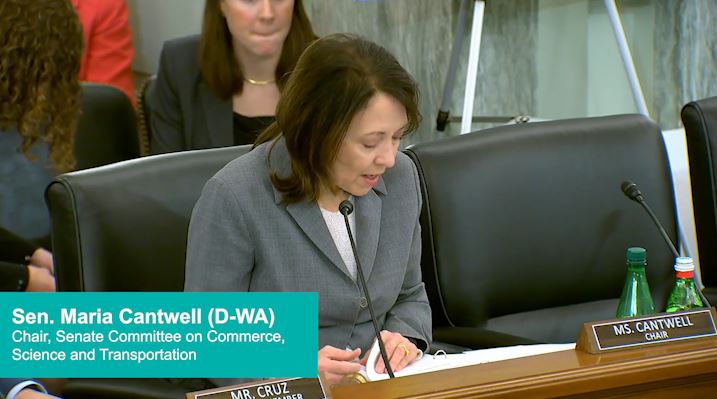Pharmacy benefit managers, or PBMs, could be required to be more transparent about their business practices if Congress passes S. 127, the Pharmacy Benefit Manager Transparency Act of 2023.
The Senate Commerce, Science, and Transportation Committee held a hearing on Thursday on the bipartisan legislation, which aims to “improve transparency and curb deceptive practices by prescription drug middlemen,” according to the co-sponsors Sen. Maria Cantwell (D-WA) and Sen. Chuck Grassley (R-A).
What are PBMs – and why do they need to be more transparent?
“PBMs are companies that manage prescription drug benefits on behalf of private health insurers, Medicare Part D drug plans, large employers, and other payers,” according to the FTC. “The largest PBMs are vertically integrated with health insurance companies and specialty pharmacies, giving them financial incentives to steer patients to use their affiliated services.”
Put very simply, if a drug manufacturer prices a drug at $1000, a PBM often is able to negotiate that price down by 50% in exchange for putting those drugs on their formulary.
The problem?
“Just three PBMs control 80% of the PBM market. Pharmacy chains and health insurers now own the biggest PBMs, giving independent pharmacies, care providers, and patients nowhere else to turn when PBMs increase their price,” said Committee Chair Maria Cantwell (D-WA) in her opening statement to begin the hearing.
“PBMs will claim they pass on savings to consumers or through lowering premiums, but their spread pricing and clawback tactics prove otherwise,” echoed Sen. Chuck Grassley (R-IA). “When a PBM goes with a higher price product, consumers may pay more out of pocket before their deductible kicks in or through co-insurance.
[embedyt] https://www.youtube.com/watch?v=-YtLEWhZfbA[/embedyt]
Doctors, independent pharmacies call for transparency
In a nutshell, the bill “bans deceptive unfair pricing schemes, prohibits arbitrary claw backs of payments made to pharmacies and requires PBMs to report to the FTC how much money they make through spread pricing and pharmacy fees,” say the co-sponsors.
At the hearing, several witnesses explained how PBMs’ business practices can hurt patients.
“PBMs steering the filling of [cancer drugs] to their specialty and mail order vertically integrated pharmacies all too often results in unnecessary delays, denials, and waste for cancer patients getting potentially life-saving drugs,” said Dr. Debra Patt of Texas Oncology.
In addition, PBMs raise costs and cause independent and community pharmacies to close, testified Dr. Ryan Oftebro, owner of the Kelley-Ross Pharmacy Group in Washington State.
“The Biotechnology Innovation Organization (BIO) applauds Senators Maria Cantwell (D-WA), Chair of the Committee on Commerce, Science, and Transportation, and Chuck Grassley (R-IA), Ranking Member of the Judiciary Committee, for introducing the Pharmacy Benefit Manager Transparency Act of 2023 that would increase transparency and authorize the Federal Trade Commission (FTC) to hold pharmacy benefit managers (PBMs) accountable for unfair practices that harm patients,” said BIO in a statement.




